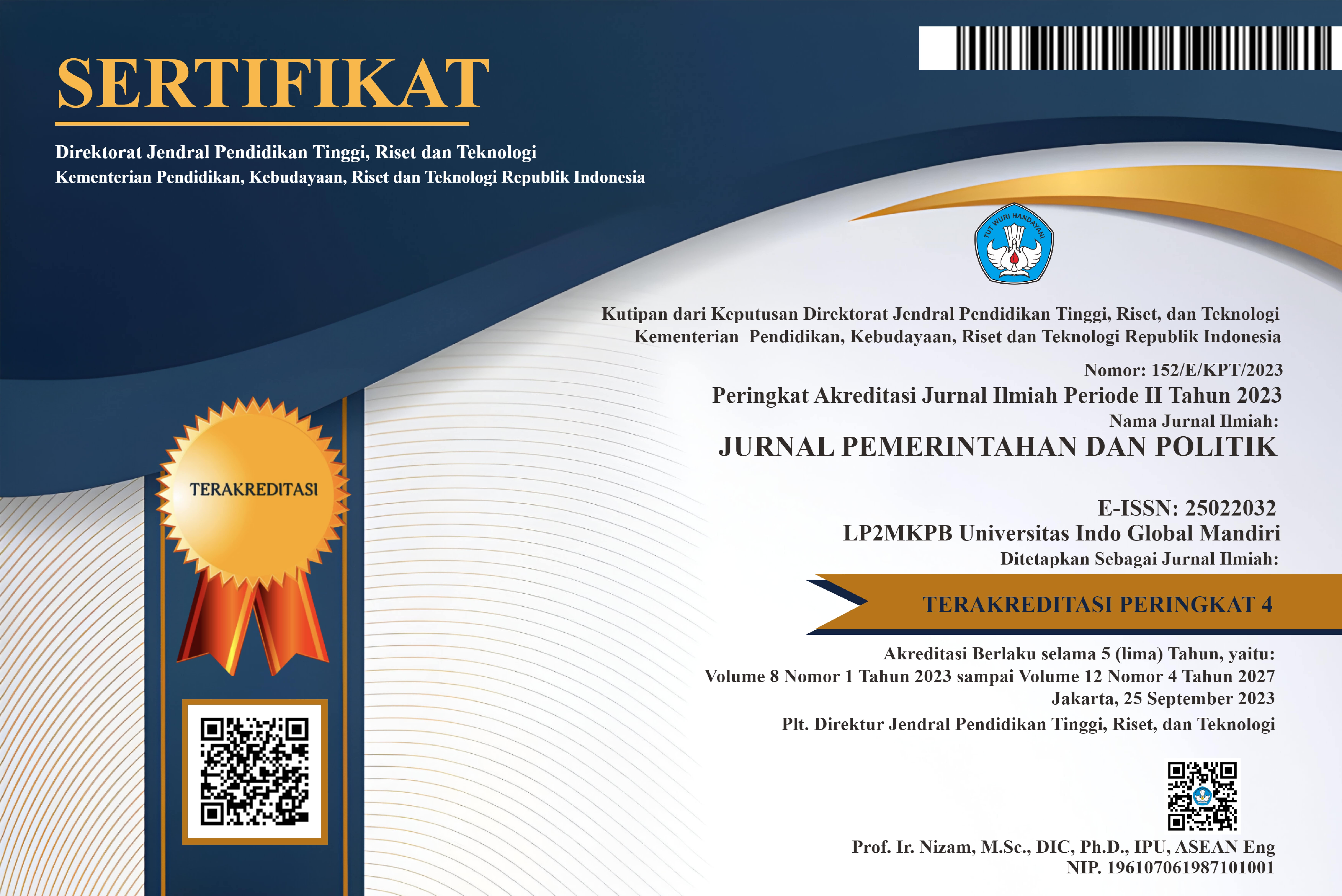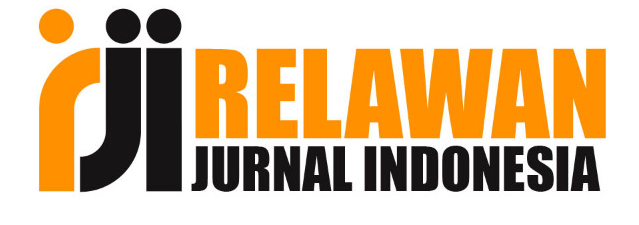UPAYA PENANGANAN DAN PENCEGAHAN PEMERINTAH INDONESIA TERHADAP KASUS PENYANDERAAN WARGA NEGARA INDONESIA OLEH KELOMPOK ABU SAYYAF
DOI:
https://doi.org/10.36982/jpg.v7i3.2320Abstract
This study goals to explain for the crimes that happen inside the Sulu Sea including kidnapping Indonesian citizens including the hostage of Indonesian citizens who led to the demand for ransom. This study uses qualitative research methods and the data sources are from studies of journals or reports from institutes or scientific writing. The reason of this study is to provide an explanation for how the Indonesian Government manages the kidnapping and Indonesia Goverment has the obligation to maintain the safety and security of its citizens, including the hostage incident by the Abu Sayyaf group and to provide an overview of the prevention efforts carried out. To analyze in this study, the author uses the concepts and theories are maritime piracy, maritime security, and international cooperation. The outcomes of this study, the handling of hostage-taking Indonesian citizens (WNI) by the Abu Sayyaf changed into carried out by the Government of Indonesia by conducting negotiations, both closed and open negotiations. Prevention efforts executed by the Government of Indonesia are by establishing cooperation Indomalphi with Malaysia and the Philippines. After the Indomalphi cooperation, there is no data showing the recurrence of Indonesian citizens being held hostage by the Abu Sayyaf group. The recommendation of advice in this paper is as a long-term prevention effort is the establishment of regional development cooperation and economic development between Indonesia and the southern Philippines. Cooperation in the field of culture, education, and in the social field. So that the cooperation is expected to build a close relationship between the two countries (sister city) can prevent the Abu Sayyaf group from kidnapping and hostage to Indonesian citizens.References
Conway, J., Roughead, G., & Allen, T. (2008). A Cooperative Strategy for 21st Century Seapower. Naval War College Review, 61(1), 3.
Coordinating Ministry for Maritime of The Republic of Indonesia. (2012). [MARITIM] Kebijakan Kelautan Indonesia 2012. Kebijakan Kelautan Indonesia 2012.
Ikhtiari, R. W. (2011). STRATEGI KEAMANAN MARITIM INDONESIA DALAM MENANGGULANGI ANCAMAN NON-TRADITIONAL SECURITY, STUDI KASUS : ILLEGAL FISHING PERIODE TAHUN 2005-2010. Universitas Indonesia.
IMO. (n.d.). Piracy and Armed Robbery Against Ships. Retrieved June 21, 2021, from https://www.imo.org/en/OurWork/Security/Pages/PiracyArmedRobberydefault.aspx
IPAC. (2019). Protecting the Sulu-Sulawesi Seas from Abu Sayyaf Attacks.
Schoeman, M., & Häefele, B. (2013). The Relationship between Piracy and Kidnapping for Ransom. SAGE JOURNALS, 5(2), 117–128.
Siyoto, S., & Sodik, M. A. (2015). Dasar Metodologi Penelitian. Literasi Media Publishing.
Stracke, N., & Bos, M. (2012). Piracy: Motivation and Tactics The Case of Somali Piracy. In Igarss (Issue 1).
Syafrida, & Hartati, R. (2021). KEUNGGULAN PENYELESAIAN SENGKETA PERDATA MELALUI NEGOSIASI. Jurnal Surya Kencana, 8(2), 248–264.
UNCLOS. (n.d.). United Nations Convention on the Law of the Sea. https://www.un.org/depts/los/convention_agreements/texts/unclos/unclos_e.pdf
United Nations Security Council. (2008). Oceans and the law of the sea Report of the Secretary-General. https://www.securitycouncilreport.org/atf/cf/%7B65BFCF9B-6D27-4E9C-8CD3-CF6E4FF96FF9%7D/a_63_63.pdf
www.dpr.go.id. (2013). Archipelagic State. https://www.dpr.go.id/dokakd/dokumen/RJ1-20190425-125010-5297.pdf
Zulkifli. (2012). Kerjasama Internasional Sebagai Solusi Pengelolaan Kawasan Perbatasan Negara (Studi Kasus Indonesia). Universita Indonesia.
KBRI MANILA. (2020). Laporan Kinerja KBRI Manila TA 2020.
KEMENHAN. (2017). Trilateral Maritime Patrol Indomalphi Resmi Dimulai. Www.Kemenhan.Go.Id. https://www.kemhan.go.id/2017/06/19/trilateral-maritime-patrol-indomalphi-resmi-dimulai.html
Kurniawan, T. (2016). Peran Penting Negosiator Dalam Pembebasan Sandera. Medcom.Id.
Nainggolan, P. P. (2015). Indonesia Dan Ancaman Keamanan Di Alur Laut Kepulauan Indonesia (ALKI). Pusat Kajian P3DI Setjen DPR RI, 20(3), 18.
Percy, S., & Shortland, A. (2013). The Business of Piracy in Somalia. Journal of Strategic Studies, 36(4), 541–578. https://doi.org/10.1080/01402390.2012.750242
Salem, A. J. A. (2016). NEXUS OF CRIME AND TERRORISM: THE CASE OF THE ABU SAYYAF GROUP. Calhoun Naval Postgraduate School.
Saraswati, A. L., & Ni Komang Desy Setiawati Arya Pinatih. (2020). Strategi Keamanan Maritim Indonesia Terhadap Maritime Piracy Di Laut Sulu Tahun 2015. Jurnal Transformasi Global Universitas Brawijaya, 7(1), 114–142.








